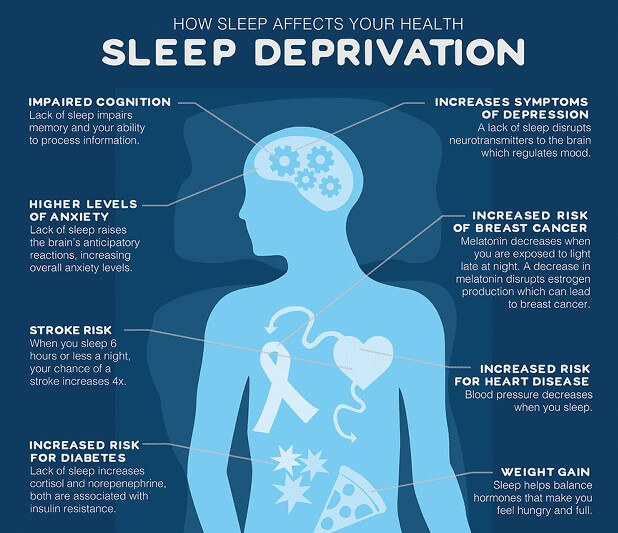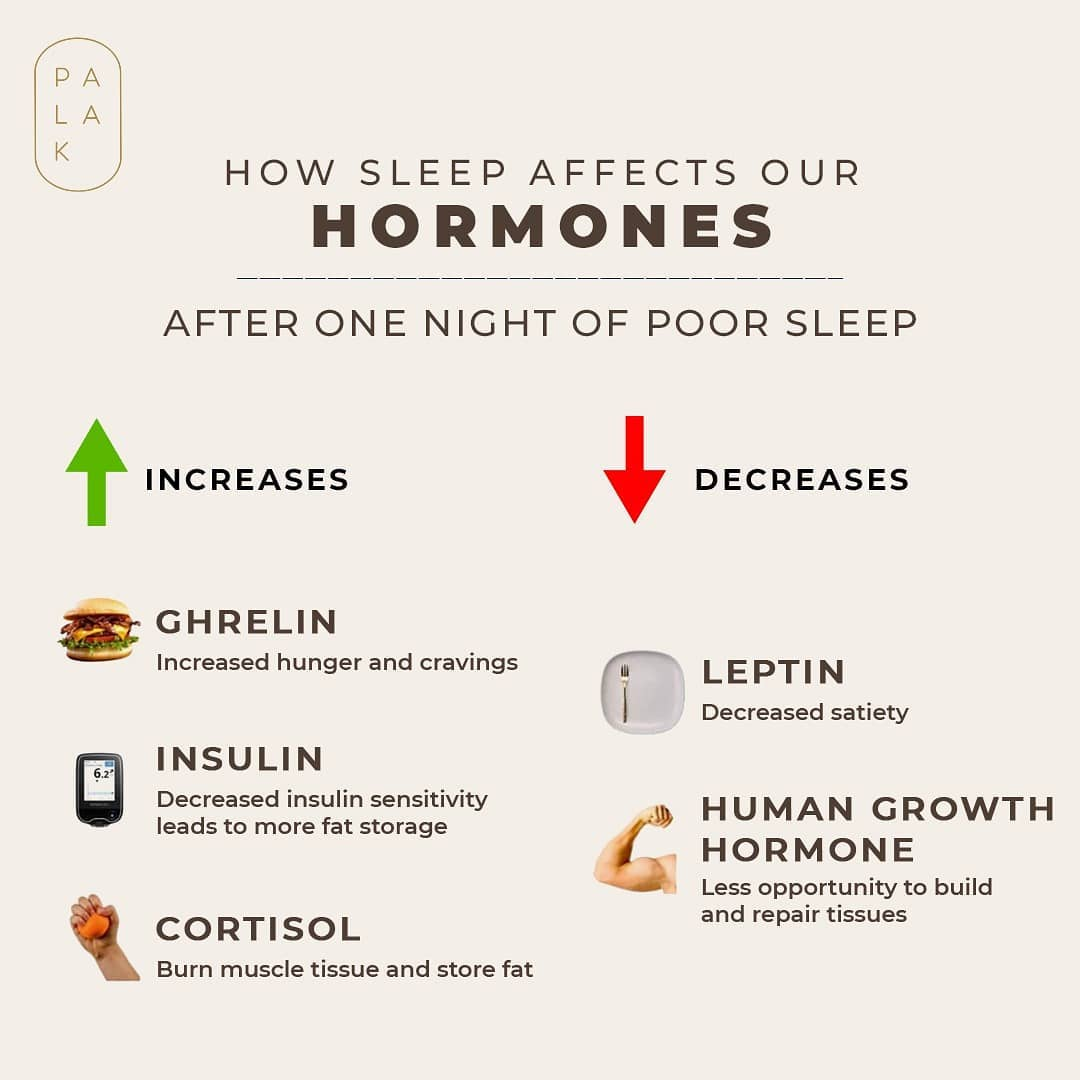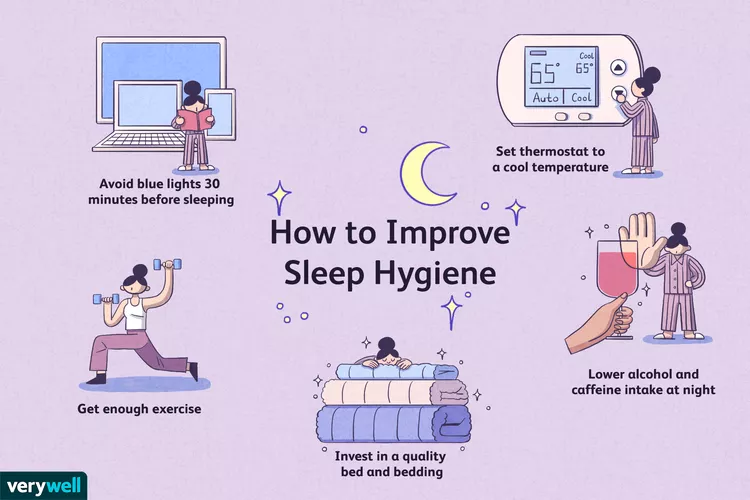Get your ZZZZs to Balance Hormones and Balance Hormones to Get your ZZZZs
Written by Dr. Suzanne Tang
August 1st, 2023
I recall how sensitive my sleep was as a child, such as the night before my first vacation to Disneyland with my family, when I was so eager that I didn't sleep a wink. When I was stressed or worried before a big exam, which was often as an overachieving, try-hard student, I would lay awake reviewing the crammed material in my head. After finally falling asleep, I would wake up throughout the night certain that I was late for my exam. This almost never happened but I actually did wake up late for my physics final in college! Thank goodness I had enough time to take the exam and pass the class :)
As an adult, I realized that excitement, anticipation, worry, and stress were not the only factors negatively impacting my sleep. Diet, devices, exercise, light, noise, temperature, travel, aging, menstrual cycles, and hormones are also major players in my sleep quality. If you suffer from acute or chronic insomnia you can relate. This month’s blog is dedicated to all the insomniacs out there, over 50 to 70 million in the US. I empathize with you and am eager to help you improve your sleep quality, balance your hormones, and optimize your overall wellness.
Most of us know the incredible energy, focus, endurance, calm, and perceived invincibility we feel after a good night’s sleep. Good quality sleep of at least 7-9 hours a night, the recommended amount of sleep for adults, does wonders for our brain, heart, immunity, cells, blood sugar, mood, metabolism, and hormones.
Poor sleep quality or sleep deprivation are associated with a long list of health concerns and conditions, including:
Reduced immunity and increased risk of colds and flu
Increased risk of breast cancer
Spikes in appetite
Obesity and weight gain
Increased risk of injuries and accidents
Reduced injury recovery
Chronic fatigue
Poor focus and concentration
Memory loss
Irritability, mood swings, anxiety and depression
Hypertension and heart disease
Type 2 diabetes
Inflammation and pain
Headaches and migraines
Inflammatory bowel disease
Decreased collagen production and more wrinkles!
Getting adequate sleep is important for regulating a number of hormones and just one night of poor sleep has a significantly negative impact on hormones, like leptin, insulin, cortisol, and others.
Sleep deprivation and poor sleep throw off the balance of hormone production and secretion, which can set us up for many health problems. Keep reading if you are interested in understanding the sensitive balance between sleep and hormones and want to learn effective tips for hormone balance and stellar sleep. If you may be experiencing severe insomnia, sleep apnea, restless leg syndrome, narcolepsy, or other causes of impaired sleep, schedule an appointment with your doctor, neurologist, or sleep specialist for further medical attention and assessment.
Cortisol
Cortisol, the stress hormone, peaks in the morning to help us wake and falls at nighttime to promote sleep. Elevated nighttime cortisol from excess alcohol, stress, sugar, caffeine, stimulation, blue light from devices, and strenuous exercise before bed can interfere with the ability to fall asleep and stay asleep. Poor sleep interrupts the rhythm of cortisol production and can raise cortisol throughout the day. Elevated cortisol levels often cause nighttime waking and early waking, sugar cravings, elevated blood sugar, weight gain, anxiety, suppressed immunity, decreased estrogen and progesterone levels, and lowered thyroid function. As the adrenal glands create more cortisol to contend with stress and inadequate sleep, the production of cortisol from pregnenolone is prioritized and shunted away from the production of estrogen and progesterone.
Sleep Wellness Tips:
Turn off devices and the TV at least 1 hour before bed. Blue Blocker glasses and the blue light blocking app f.lux are helpful for blocking blue light emitted from devices that increase cortisol and disrupt melatonin production.
Avoid sugar, caffeine, alcohol, rigorous exercise, and stimulating activities 3 hours before bed. For those sensitive to caffeine, cut out caffeinated food and beverages by 12 p.m.
Keep your blood sugar stable by incorporating healthy fats, proteins, and complex carbohydrates with each meal, and avoid eating heavy or greasy food too close to bedtime.
Cortisol Manager, which includes ashwagandha and L-theanine and SeriPhos or phosphorylated serine/ethanolamine are excellent formulas containing cortisol-regulating nutrients that can help improve sleep quality and duration.
Meditate, take deep breaths, journal, listen to relaxing music, do gentle yoga, and/or stretch before bed to decompress from stress and reduce cortisol. The Calm meditation app has sleep-inducing sleep stories and sleep meditations that are helpful for falling asleep as well as for falling back asleep from nighttime waking.
Change your thoughts, reactions, and situations that are driving the stress. The book, “The Tools” written by Philip Stutz and Barry Michels provides effective tools to break free from the “maze” and “black cloud” of anxiety and worry that often keep us up late at night with our monkey mind, overthinking and perseverating.
Estrogen and Progesterone
Estrogen and progesterone are important hormones that support the release of serotonin and GABA (gamma aminobutyric acid) as well as melatonin. Optimal levels of these neurotransmitters are key for promoting and maintaining sleep and balancing mood. Many of my female patients report disrupted sleep quality premenstrually when progesterone drops during this phase of the menstrual cycle. In addition, menopausal nighttime urination, hot flashes, and night sweats are notorious sleep disruptors. One of my patients, who suffered from chronic insomnia and slept about five hours a night for over ten years, did not realize that her poor sleep was associated with menopause. Her insomnia was completely resolved after starting bio-identical hormone therapy.
Sleep Wellness Tips:
Schedule an appointment to have your hormones assessed and balanced with naturopathic medicine and acupuncture. Need to do some research first? Review my previous blog, “Meno-Ease, Easing Into Menopause Naturally,” for further info.
Take magnesium glycinate before bed. Magnesium supports GABA and progesterone production, calms the nervous system, and alleviates muscular tension. Epsom salt baths or topical magnesium massage are also effective ways to enhance the absorption of magnesium.
Talk to your naturopathic doctor about the best natural sleep aide formula for you. These formulas contain calming herbs and amino acids, such as 5-hydroxytryptophan, L-theanine, lavender, chamomile, and passionflower as well as Chinese herbs suan zoo ren and jujube to support serotonin and GABA and enhance sleep quality.
Keep your room comfortably cool and avoid heavy layers of clothing and blankets.
Cut off fluid intake 2 hours before bed to prevent nighttime urination.
Hunger Hormones
Sleep is a vital part of maintaining your metabolism, which converts food into energy. Your metabolism is maintained by your hunger hormones, which include:
Leptin
Ghrelin
Insulin
These hormones regulate your hunger, fullness, fat storage, and blood sugar regulation. Poor sleep can negatively affect your hunger and your appetite, which can cause weight gain and can also impact insulin resistance, increasing the risk of Type 2 diabetes.
Sleep Wellness Tips:
Eat a low-glycemic index diet low in refined sugar, white rice, white potatoes, and white flour to balance blood glucose and insulin.
Eat when you are 70% hungry and stop eating when you are 70% full. Refrain from overeating before bedtime.
Regular daytime exercise significantly regulates the balance of hunger hormones.
Melatonin
Melatonin is known as the sleep hormone and is secreted by the pineal gland in the brain to regulate the sleep-wake cycle and promote deep sleep. Melatonin supports growth hormone production and is rich in antioxidants, which are beneficial for supporting fertility, mood, and eye health. Artificial LED light and blue light from devices suppress melatonin production, interfering with sleep latency and causing difficulty with falling and staying asleep.
Sleep Wellness Tips:
Stop using all electronic devices at least an hour before bed.
Use biological lighting like Biologic Lighting
Use black-out curtains at bedtime and get at least 1 hour of sunshine daily, especially in the morning.
Turn off electronics during sleep.
Low-dose melatonin, starting at 1 mg, can be very beneficial for restoring melatonin levels. For children, please consult with your practitioner regarding safe and appropriate dosing.
Have a consistent bedtime, ideally by 10 p.m. or earlier, and wake schedule.
Reserve your bedroom for sleep and intimacy only, not work or TV watching.
Do not fall asleep in front of the TV in your living room.
Avoid napping for more than 30 minutes and after 2 p.m.
Eat a healthy snack rich in protein and healthy fats before bed. Incorporate foods and teas that are rich in minerals, help produce melatonin and serotonin, and ease you into a deep sleep, such as cherries, tart cherry juice, or a warm glass of milk.
Thyroid Hormones
Hypothyroidism or decreased production of thyroid hormones, may affect overall sleep quality. Some studies have linked low thyroid function to insomnia with longer sleep latency and frequent nighttime wakings. Hypothyroidism may also be a predisposing factor to restless leg syndrome, which is marked by uncomfortable or unpleasant sensations in the lower body that occur in the evening or nighttime and can significantly disrupt sleep. On the flip side, hyperthyroidism or excessive production of thyroid hormones can also cause insomnia, heart palpitations, and anxiety.
Sleep Wellness Tips:
Schedule an appointment with your practitioner to have a full thyroid panel ordered and assessed. Naturopathic medicine can naturally support and balance thyroid function with diet, nutrient and herbal supplementation, and if needed, glandular therapy. Stay tuned for my future blog on the thyroid gland!
For restless leg syndrome, regular exercise, stretches, massages, warm baths, electrolyte support, and acupuncture may help reduce discomfort and support deep sleep.
Invest in a comfortable and supportive bed, pillow, and bedding.
Growth Hormone
Human growth hormone (HGH) is important for maintaining metabolism, growth, immunity, muscle development, and the production of proteins in your body. Getting enough sleep is essential for the production of growth hormones in your body. Low growth hormone is associated with poor cellular repair and injury recovery, weight gain, particularly in the belly, and impaired lipid and blood sugar regulation.
Sleep Wellness Tips:
Review your medication and supplement list with your practitioner to rule out any drugs or supplements that may be disrupting your sleep.
If noise from your environment or partner is interfering with your sleep, try my favorite ear plugs, Mack’s silicone ear plugs. These were game changers for my sleep when my husband was on call for work 24/7, particularly at nighttime.
Regular physical exercise, sunshine, good sleep hygiene, and stress reduction not only improve growth hormone production but also aid in, you guessed it, better sleep. :)
I hope you gleaned insight and inspiration on the importance of sleep, a healthy, consistent sleep hygiene practice, and the powerful connections between sleep and hormones! Sleep tight!
Yours in Wellness,
Dr. Suzanne Tang, ND, LAc







